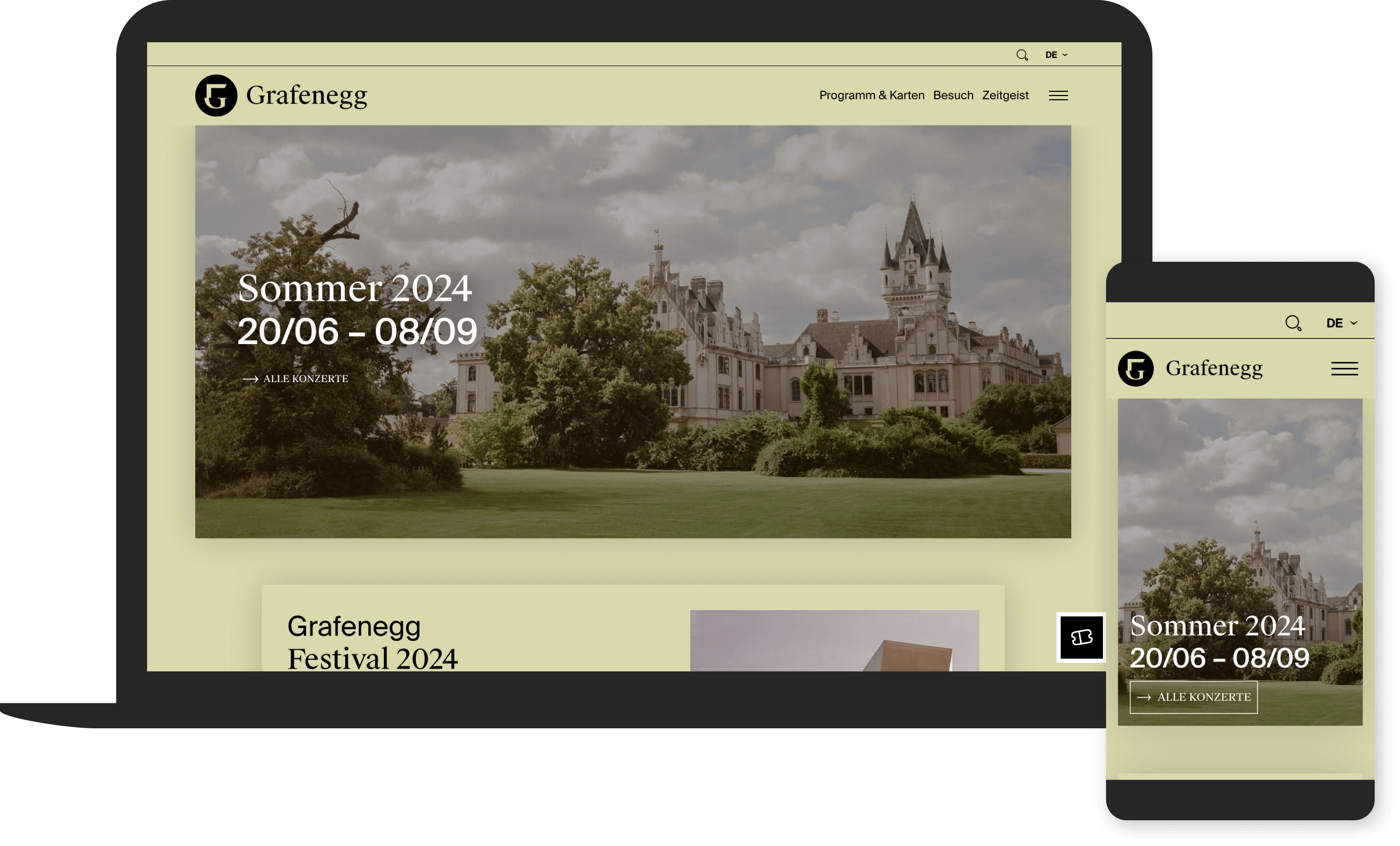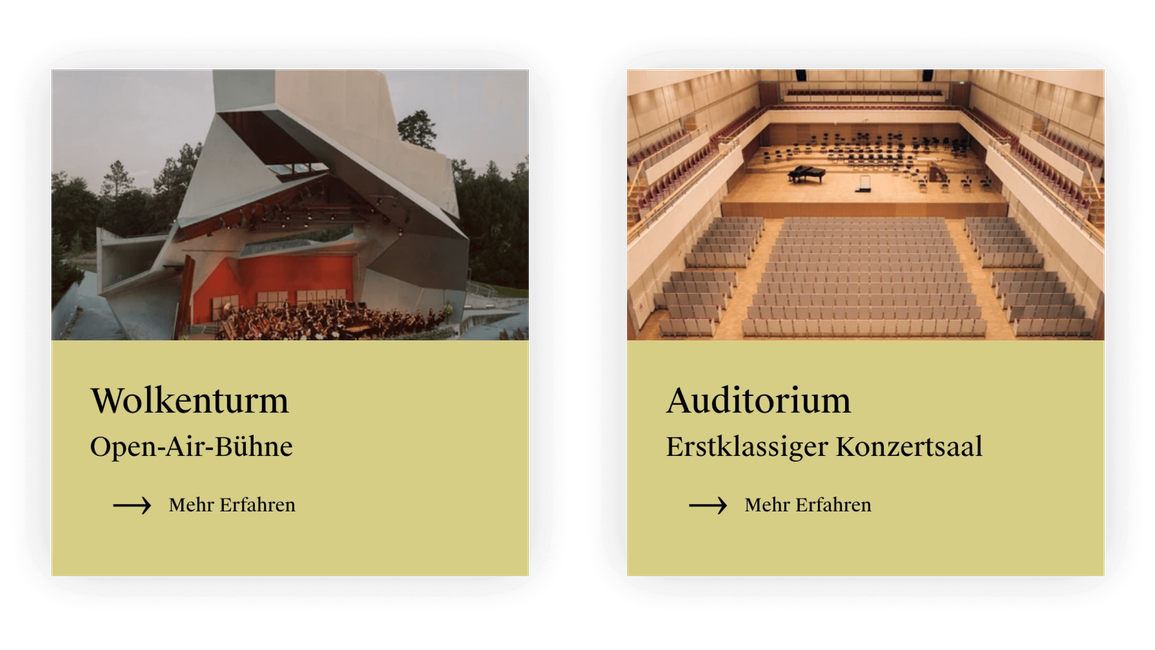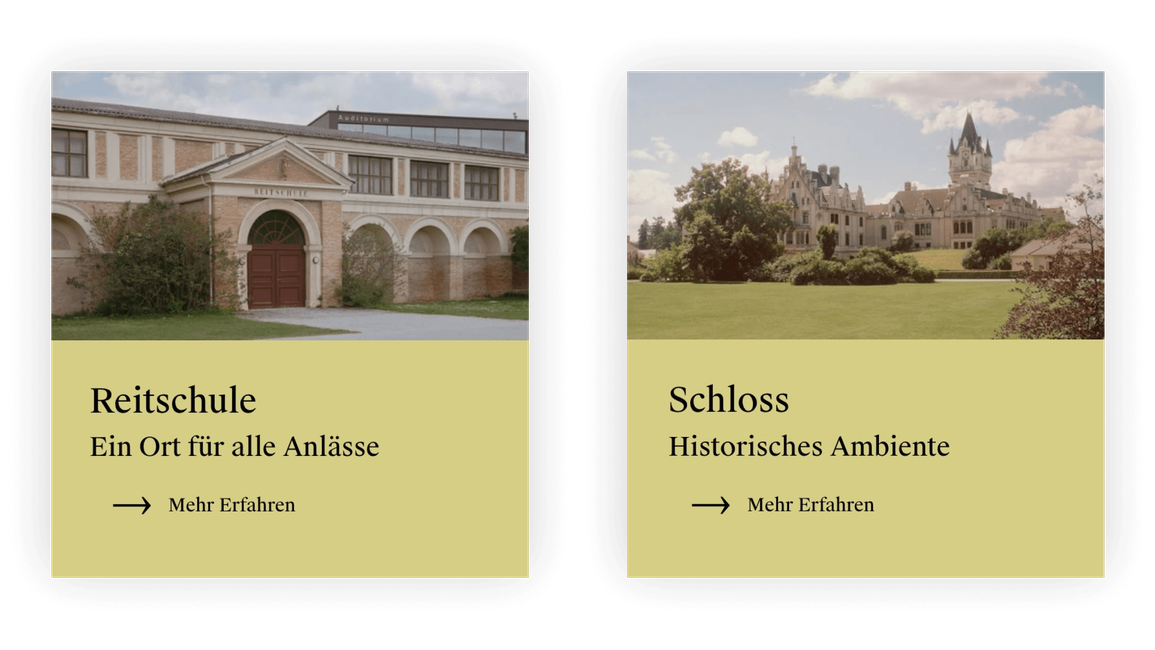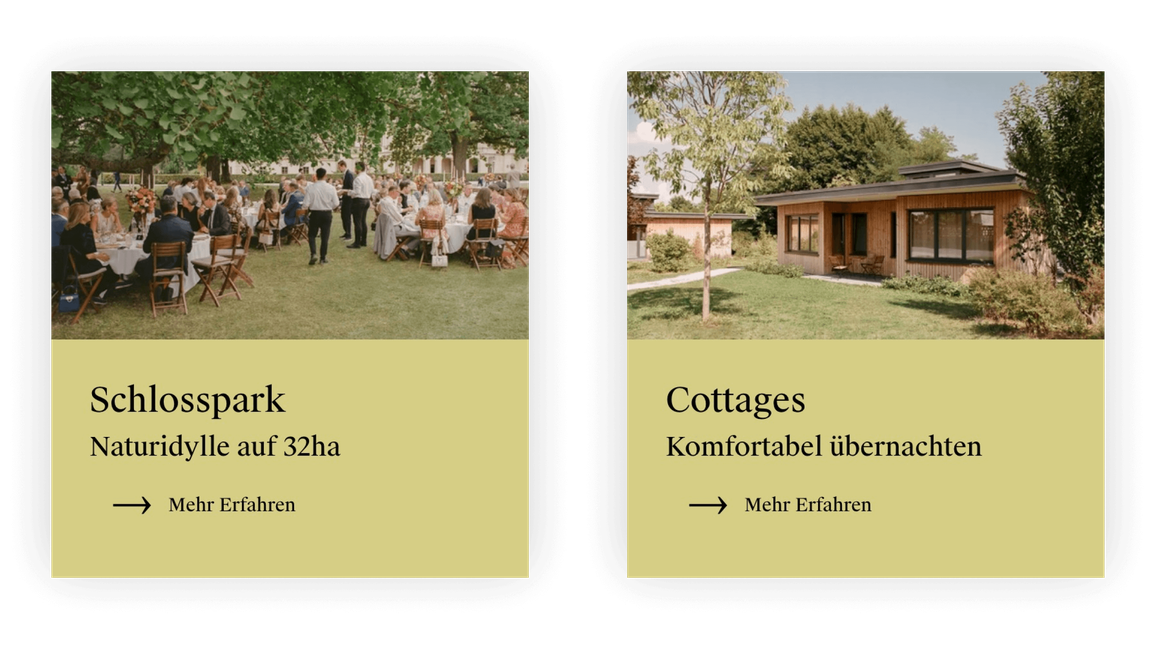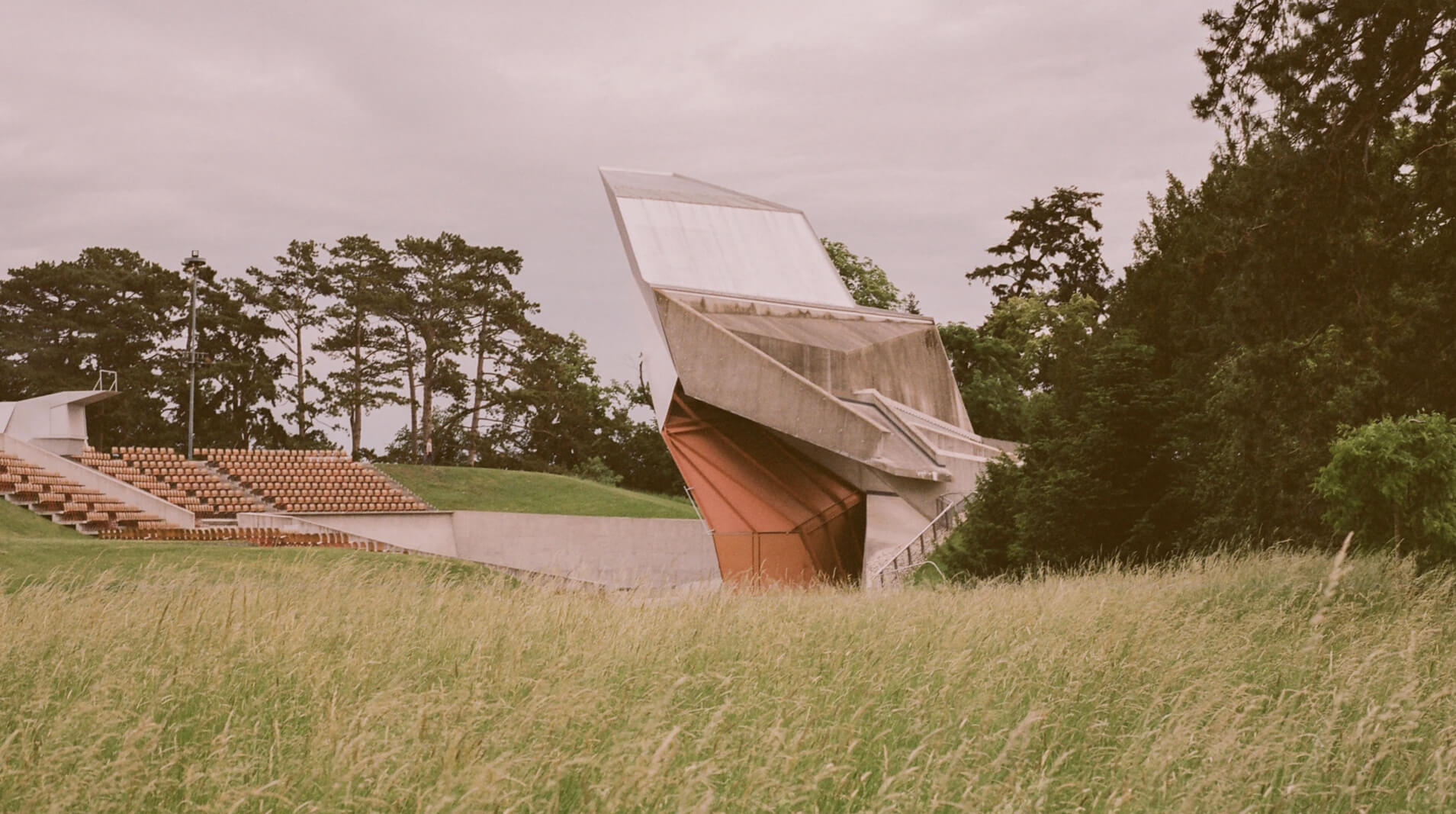
Program and tickets
As part of the redesign of the Grafenegg website, the navigation and structure were simplified and the site was given a new, modern and distinctive design. A central concern was also to significantly improve the user experience. Among other things, the program including ticket purchase can be conveniently called up via an overlay using a button without having to leave the detail page you are on. In addition, the filters applied are shown in the URL - including the overlay - so that each detail page can be shared with interested parties by email or messenger.
In the detailed view of the individual events, all relevant information is displayed at a glance, including whether an introductory event, bus transfer, prelude concert or other supporting program is offered.
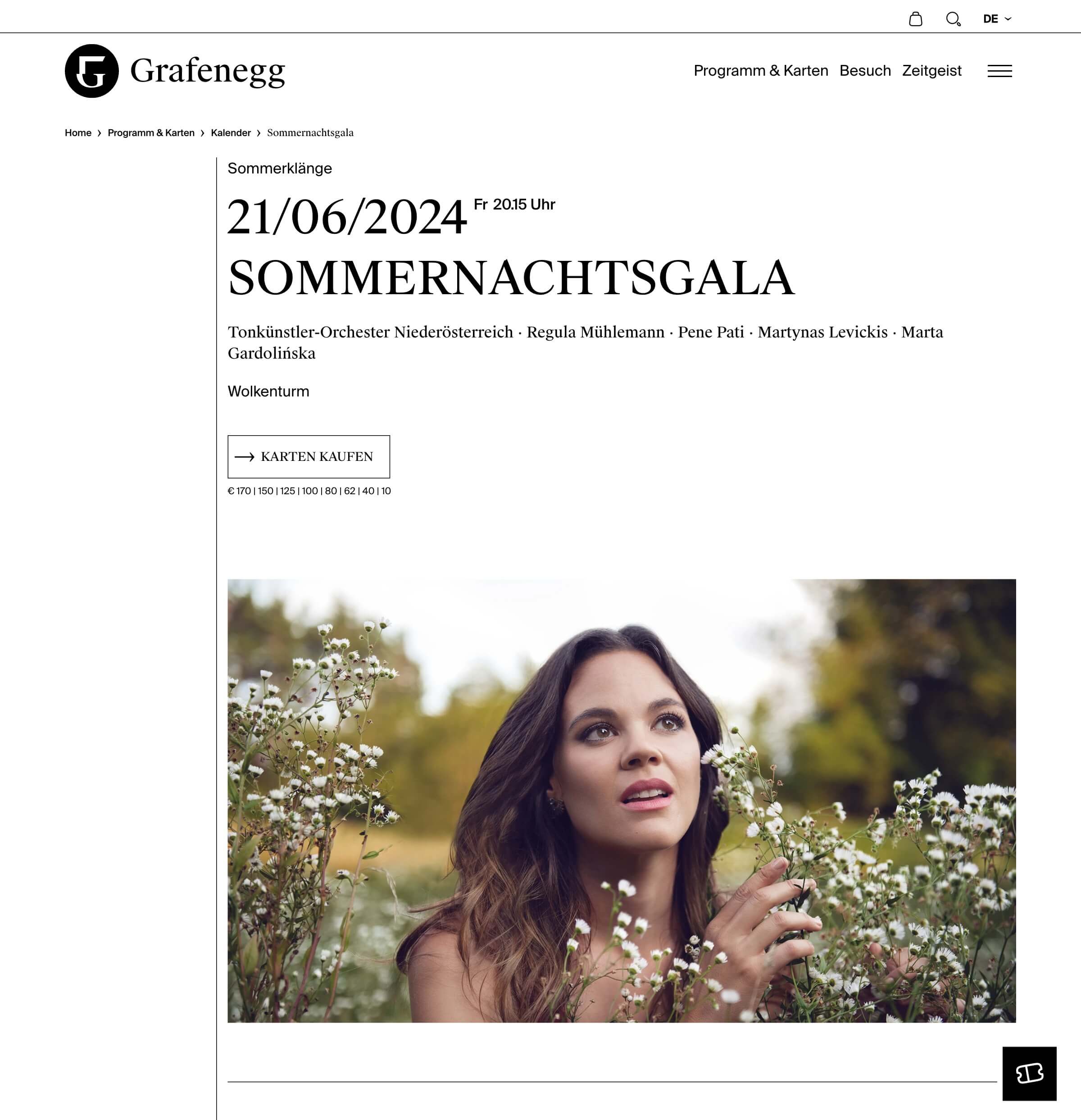
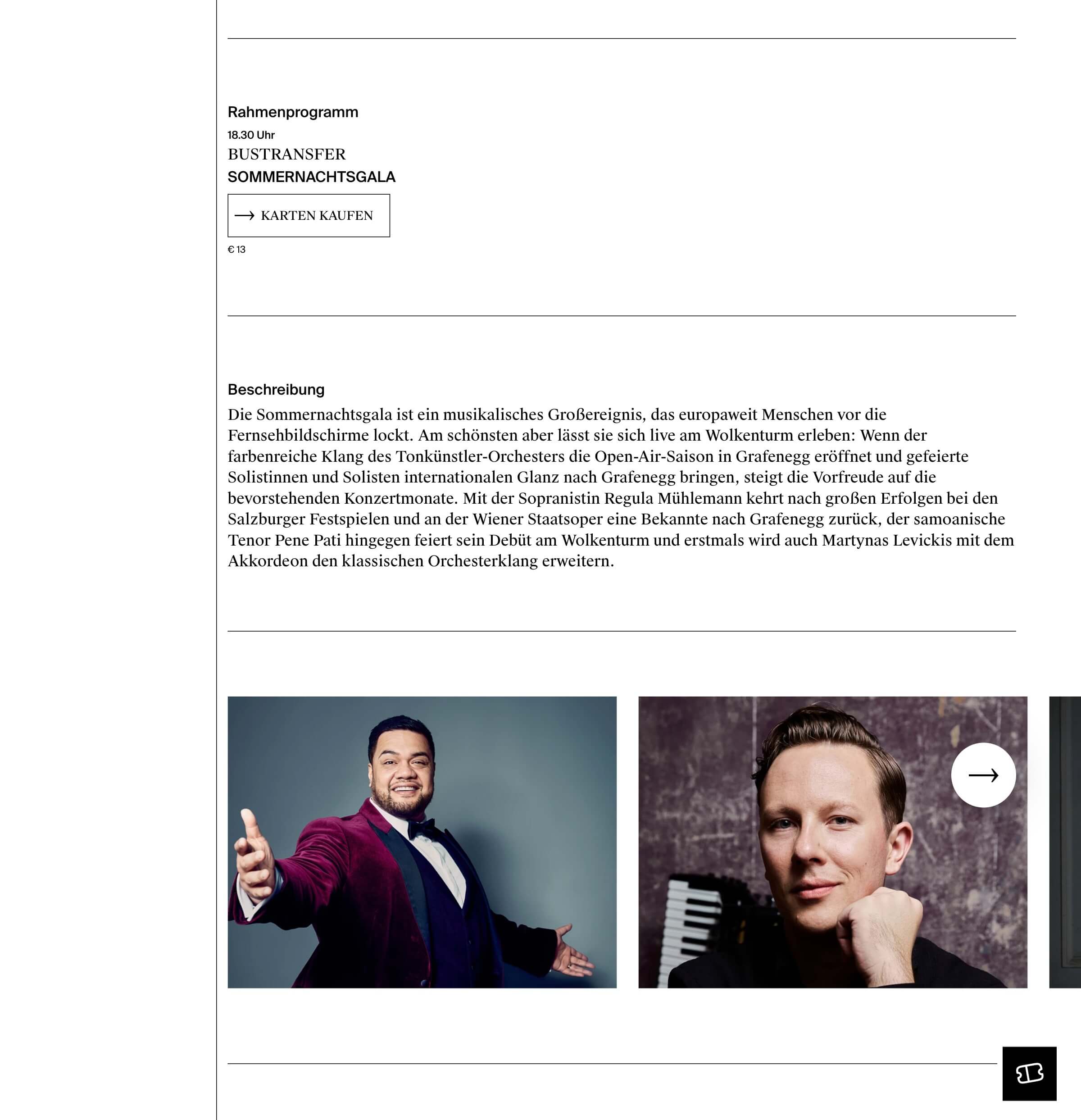
Cultural production par excellence
Grafenegg is not only a renowned, year-round festival and event location with exceptional venues, but also a meeting place for teachers, students, composers and musicians. The production of culture at the highest level is also reflected on the content level of the website. The magazine-style blog and media library regularly publish long articles, podcasts, interviews and videos that can be grouped and searched using hashtags.
These different dimensions of Grafenegg were spread across four individual websites before the relaunch and have now been brought together in a well-structured way within the new site. This allows the various audiences and target groups to find the desired content quickly and easily.
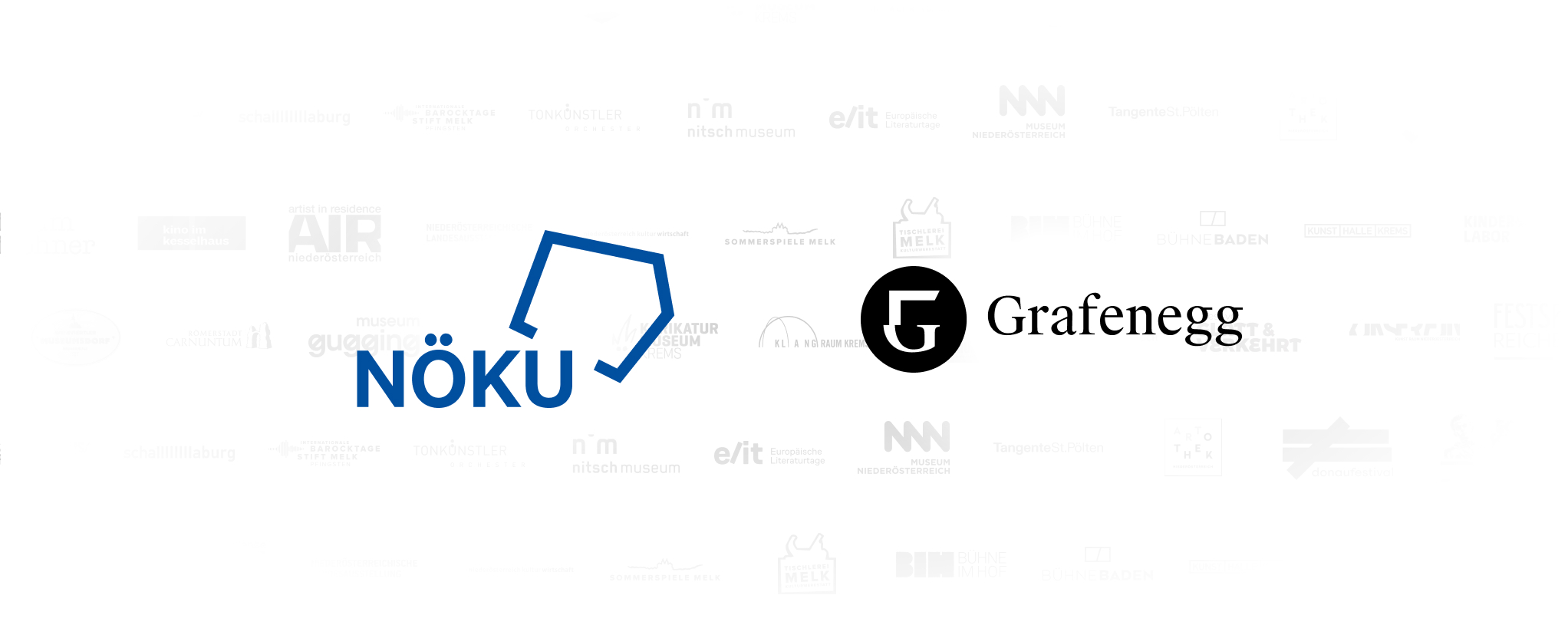
Grafenegg under the umbrella of the NÖKU Group
The aim of developing the multi-site architecture for the NÖKU Group is to create a uniform and centralized content management system for all NÖKU facilities despite the heterogeneity of the individual cultural venues. At the same time, the design and functionality of the frontend can be individualized for each venue - as can be seen in the example of Grafenegg. This means that new features will be available on the individual websites in future without having to be rolled out at great expense for the nearly 40 websites. Website features such as data protection (cookie manager, legal notice, privacy policy), expansion of accessibility standards, search engine optimization and performance optimization can also be managed centrally and conveniently via the main system.
Summary
The technically complex system, which the individual cultural institutions such as Grafenegg can access and use individually for themselves, integrates a block-based WYSIWYG page editor with four scheduling systems, central asset management and an integrated ticketing system. A single sign-on for Eventim and the Grafenegg website was implemented to make use of the site and booking tickets as convenient as possible.
All in all, a technically demanding project that significantly simplifies the implementation and management of the websites of the institutions bundled under the umbrella of the NÖKU Group while still ensuring the highest possible degree of customization.
-
Client
Grafenegg Kulturbetriebsgesellschaft m.b.H.
-
Project
www.grafenegg.com
-
Duration
6 months
-
Go-Live
Autumn 2023
-
Team
1 Project Manager
1 Designer
1 Frontend-Developers
1 Backend Developer
1 IT Operator -
Systemwelt
Kokos (Distribution Software)
JetTicket (Ticketing-System)
Celum (Digital asset management)
Hubspot (CRM)
Python/Django (Webframework)
Nuxt.js/vue.js (Frontend Framework)
Elasticsearch (Onsite Search Engine)
Celery (Task-Management)
Sentry (Error Tacking)

